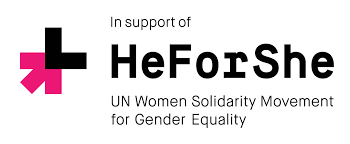The Importance of Economic Equality
Economic equality is a fundamental principle that plays a crucial role in shaping societies around the world. It refers to the fair distribution of wealth, resources, and opportunities among individuals and groups within a society. When economic equality is achieved, it leads to a more just and stable society where everyone has the chance to thrive.
Benefits of Economic Equality
Social Stability: Countries with higher levels of economic equality tend to experience lower rates of crime, social unrest, and political instability. When people feel economically secure and have access to basic necessities, they are less likely to engage in activities that threaten the social order.
Improved Health Outcomes: Economic inequality is closely linked to disparities in health outcomes. People living in poverty often face greater health risks due to limited access to healthcare, nutritious food, and safe living conditions. By promoting economic equality, we can improve overall public health and well-being.
Enhanced Economic Growth: A more equal distribution of wealth can stimulate economic growth by increasing consumer spending, promoting entrepreneurship, and fostering innovation. When wealth is concentrated in the hands of a few individuals or corporations, it can hinder economic development by limiting opportunities for others.
Challenges to Achieving Economic Equality
Income Disparities: Income inequality remains a significant challenge in many societies, with high earners accumulating vast amounts of wealth while low-income individuals struggle to make ends meet. Addressing income disparities through fair wages and progressive taxation policies is essential for promoting economic equality.
Access to Education: Education plays a critical role in breaking the cycle of poverty and promoting economic mobility. However, disparities in access to quality education based on socio-economic status can perpetuate inequality. Investing in education equity initiatives can help level the playing field for all individuals.
Conclusion
Economic equality is not only a moral imperative but also a practical necessity for building sustainable and thriving societies. By addressing income disparities, improving access to education and healthcare, and implementing policies that promote fairness and inclusion, we can create a more equitable world where everyone has the opportunity to reach their full potential.
5 Key Strategies to Promote Economic Equality in Your Community
- Support policies that promote fair wages and equal pay for all workers.
- Advocate for affordable access to education and training programs to help bridge the economic gap.
- Encourage companies to implement diversity and inclusion initiatives in their hiring and promotion practices.
- Promote financial literacy programs to empower individuals from all backgrounds to make informed financial decisions.
- Support local businesses and organizations that prioritize economic equality in their operations.
Support policies that promote fair wages and equal pay for all workers.
Supporting policies that promote fair wages and equal pay for all workers is essential in advancing economic equality. By ensuring that individuals receive just compensation for their work regardless of gender, race, or other factors, we can create a more equitable society where everyone has the opportunity to thrive and contribute to the economy. Fair wages not only provide financial stability for workers and their families but also help reduce income inequality and promote social justice. It is crucial to advocate for policies that uphold the principle of equal pay for equal work to build a more inclusive and prosperous future for all.
Advocate for affordable access to education and training programs to help bridge the economic gap.
Advocating for affordable access to education and training programs is a crucial step in bridging the economic gap and promoting economic equality. By ensuring that individuals from all socio-economic backgrounds have the opportunity to pursue quality education and acquire valuable skills, we empower them to enhance their earning potential and break the cycle of poverty. Education is a powerful tool for promoting social mobility and leveling the playing field, enabling individuals to compete on equal footing in the job market and contribute meaningfully to the economy. Investing in accessible education and training programs is an investment in a more equitable society where everyone has the chance to succeed.
Encourage companies to implement diversity and inclusion initiatives in their hiring and promotion practices.
Encouraging companies to implement diversity and inclusion initiatives in their hiring and promotion practices is a crucial step towards promoting economic equality. By fostering a workplace culture that values and celebrates differences, companies can create opportunities for individuals from diverse backgrounds to thrive and advance in their careers. Embracing diversity not only enhances innovation and creativity but also helps address systemic barriers that have historically limited access to economic opportunities for marginalized groups. Through intentional efforts to promote diversity and inclusion, companies can contribute to building a more equitable society where everyone has an equal chance to succeed.
Promote financial literacy programs to empower individuals from all backgrounds to make informed financial decisions.
Promoting financial literacy programs is a key strategy in advancing economic equality by empowering individuals from diverse backgrounds to make informed financial decisions. By providing education on topics such as budgeting, saving, investing, and managing debt, these programs equip people with the knowledge and skills needed to navigate the complexities of the financial world. With increased financial literacy, individuals are better equipped to make sound decisions that can lead to long-term economic stability and success, ultimately contributing to a more equitable society where everyone has the opportunity to achieve financial well-being.
Support local businesses and organizations that prioritize economic equality in their operations.
Supporting local businesses and organizations that prioritize economic equality in their operations is a powerful way to contribute to a more just and equitable society. By choosing to patronize businesses that pay fair wages, provide opportunities for advancement, and support their communities, you are helping to create a more inclusive economy where everyone has the chance to succeed. These businesses often have a positive impact on the local community by fostering economic growth, creating jobs, and promoting social responsibility. Your support can make a difference in building a more economically equal world for all.


